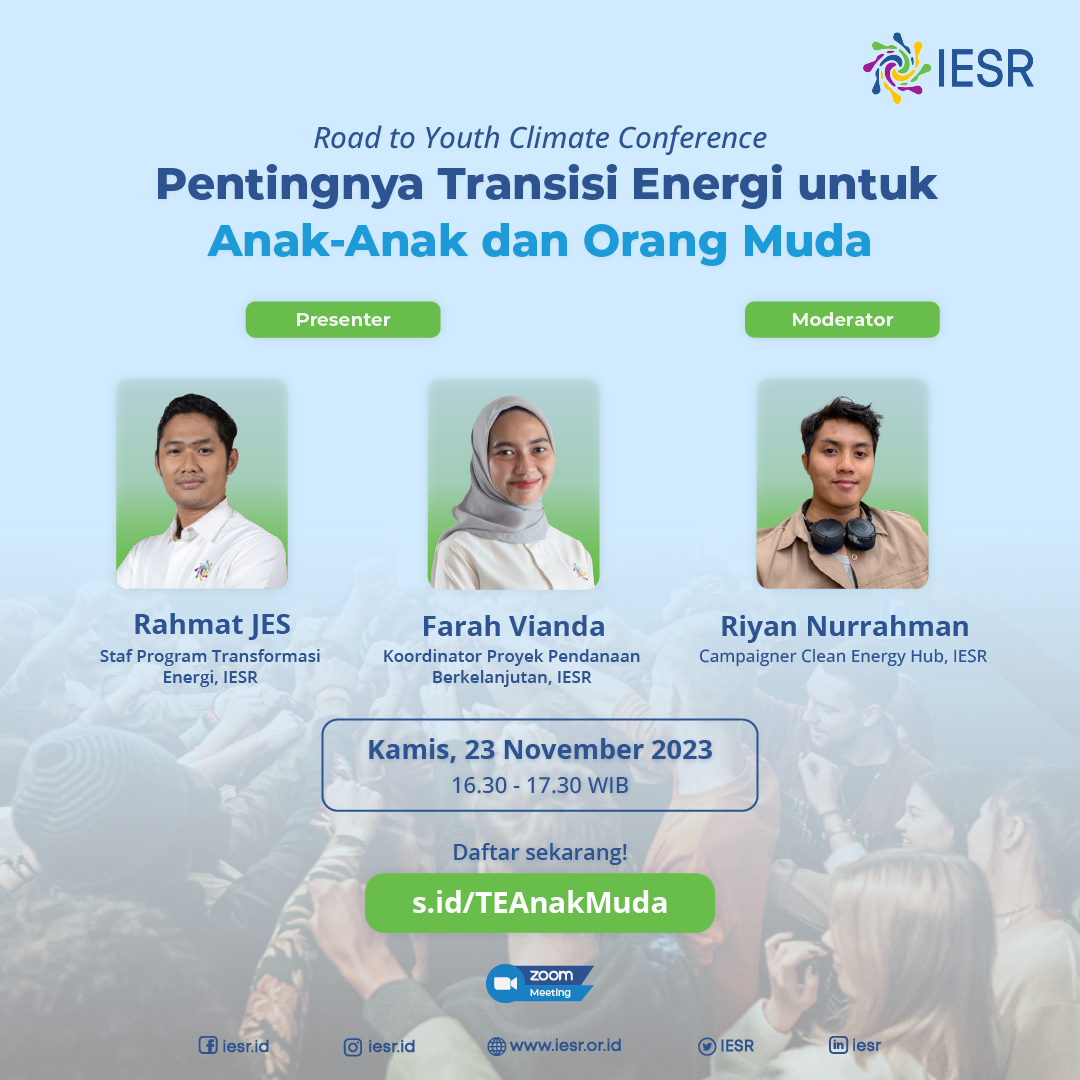
Webinar The Importance of Energy Transition for Children and Young People
Background
Indonesia is the fourth country with the highest number of children in the world. About one-third of Indonesia’s population is made up of children. According to BPS Interim Population Projection 2020–2023 data, in 2022, the number of children aged 0–17 years was 29.15%, or 79,486,424 people. Meanwhile, young people aged 15–34 are approximately 89 million people. According to a study conducted by Save the Children in 2020, it was found that children born in 2020 will experience disasters 3.4 times more often than the generation born in 1960. These disasters caused by climate change include heat waves, floods, forest fires, droughts, and crop failures. According to a UNICEF study, climate change poses the greatest threat to the health, nutrition, education, and future of children and young people.
Climate mitigation is one of the most important things to consider, especially in the energy sector. Currently, global warming is caused by emissions produced by burning fossil energy. Indonesia is one of the countries that relies heavily on fossil energy, especially coal. With this condition, Indonesia still cannot have ambitious climate ambitions. On the other hand, according to the book Start Here: Understanding Indonesia’s Energy Transition (2023), fossil fuel-based power plants cause negative impacts on the climate. For example, they emit carbon dioxide (CO2), methane, and other gases. These emissions lead to acid rain, an increased greenhouse effect, and global warming, which contribute to the current climate change phenomenon.
The energy transition process will not only change the existing energy system but also have the potential to change the socio-economic system of the surrounding community. Therefore, the energy transition must involve all parties, including the community, to reduce the potential social, economic, and environmental impacts. The involvement of children and young people is one of the important parties in this transition process. According to IESR’s “Just Transition in Indonesia’s Coal Producing Regions” study, the mining sector is one of the most attractive sectors for young people in Paser District and Muara Enim District. However, with the trend of energy transition, it is estimated that in the future, the coal industry will begin to decline due to a decrease in global coal demand.
Therefore, IESR intends to organize a webinar on the importance of energy transitions for children and young people. This event is part of the pre-Youth Climate Conference, a conference for children and young people to voice the issue of the climate crisis to Indonesian leaders. It is hoped that through this webinar, IESR can provide a deeper perspective and understanding of the importance of the energy transition issue for the future of children and young people.
Objectives
This webinar activity has several objectives, namely:
- Raising awareness about the importance of energy transition among children and young people, especially on the issue of electricity and equitable transition;
- Provide a forum for discussion on the impact of the energy transition on children and young people.
Speakers
-
Farah Vianda - Sustainable Finance Coordinator - IESR
-
Rahmat Jaya Eka Syahputra - Net-Zero Industry Stakeholder Engagement Coordinator - IESR
-
Riyan Nurrahman - Campaigner Clean Energy Hub - IESR

